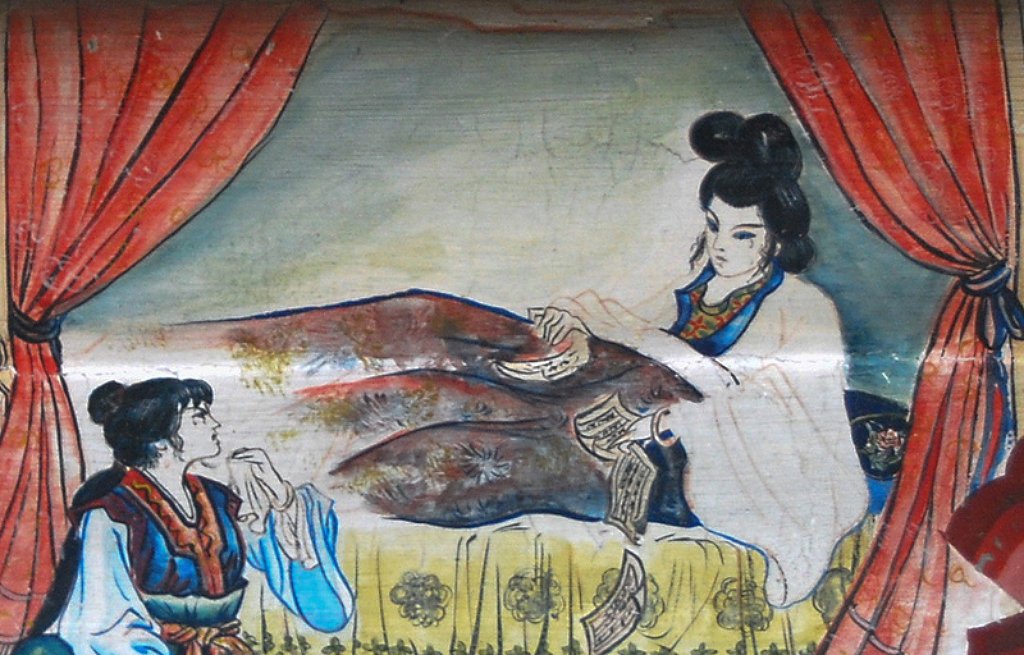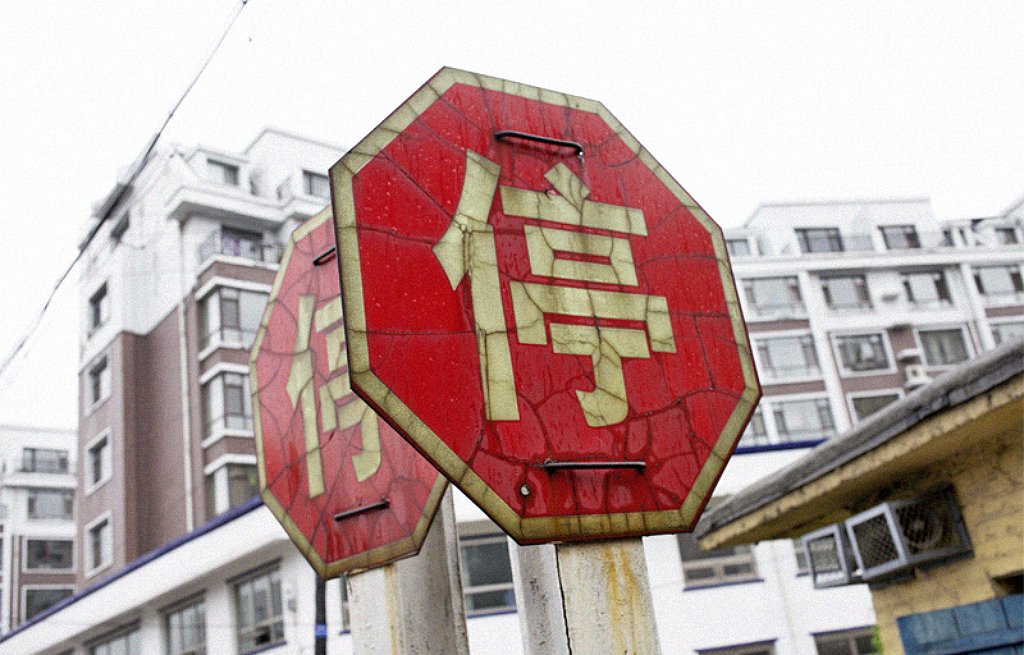Articles
China Elevator Stories
Is China a safe place to live for expat women? My personal experience of harassment by a Chinese guy
How safe is China for expat women?
25/02/2015

Ruth Silbermayr
Author
A false sense of security
“Is China a safe place to live for expat women?” This is an important question every woman planning to live in China has to ask herself before moving there. The first years of living in China, I always felt quite safe. But like many others and only after having lived here for some time, I’ve realised that China is not as safe as many expats think it is. I haven’t experienced sexual harassment the way some other women have, such as Jocelyn from Speaking of China, who writes about being sexually harassed by a driver in Beijing or Zhou Jiayi from Shandongxifu, who was almost gang raped in Shenzhen, but there were a few close calls.
Amanda from Two Americans in China has recently shared her experience of assault and harassment in China. She mentions having been threatened by one guy in particular because she’s speaking up:
“There is a Chinese man who calls himself Nathan but I call The Shenzhen Creeper who has been harassing and stalking expat women in Shenzhen for over a year. He is the reason we had to turn the Shenzhen Writers Circle into Women Writers of Shenzhen. The women in the group simply didn’t feel safe with him in our community. Whenever a new expat woman would join our group (only expat women; he has never stalked a Chinese member of our group), he would get their WeChat (like China’s Facebook and instant messenger) and their email address and continually message them. Most of the messages may seem harmless enough, asking if the women want to get coffee or go to a movie, but several of them have been creepy, asking where the women live, work, or go to the gym. He has sent long love songs to women and asked if they “see themselves” in his love poems. I should also mention that Creeper is married and has a one-year-old daughter.”
I want to talk about the Shenzhen Writer’s Circle incident with you – the same one Amanda writes about in her post. No matter where we live, as women, we should never give ourselves a false sense of security.

My experience of harassment in China
I was one of the women who was contacted by the “Shenzhen Creeper”. Like Amanda mentioned in her post, he goes by the English name Nathan (but of course, he might change his name on WeChat in the future). He is a Chinese in his mid-30s with a wife and a 1-year-old daughter (something he used to “forget to mention”). Below, I’ll just refer to him as that guy. I’m listing a few of the things he said or did that made me feel uncomfortable, anxious and even afraid for my safety. I should mention that he did not only contact single women, but didn’t stop at any woman, including me, a married and pregnant woman. But really, even if I was single, he should have stopped. I hope that this will help other women who are in similar situations to recognise the pattern, speak up and put a stop to people like him. Many Western women are not as confrontational as we are sometimes made out to be in China. Cultural differences are not an excuse to harass people.
Joining the Shenzhen Writer Circle’s WeChat group
When I joined the WeChat group of the Shenzhen Writer’s Circle, I was in my first trimester of pregnancy. I often felt nauseous, exhausted and had a few other pregnancy symptoms, so I didn’t go out much during that time. Shortly after joining, that guy kept contacting me. He complimented me for my writing on my blog and asked if I wanted to go for a coffee to talk about writing. Out of politeness I said yes, although I really didn’t feel like going for a coffee with a stranger. I always made excuses not to go. Also, I started ignoring that guy because he asked a lot of personal questions that made me feel uncomfortable.
The first time I went to a meeting of the Writer’s Circle, I was in my second trimester of pregnancy and my bump was already showing. Ignoring that guy didn’t keep him from contacting me and after having met him in person, I thought it harder to ignore him. Not because I thought he was a nice person, but because it’s just harder for me to ignore people after having met them and talked to them in person (and knowing that I’ll run into him again at other writer meetings).
Not taking a hint
I ignored him for long stretches of time, over and over again. I told him I’m happily married and pregnant. He couldn’t take the hint (or didn’t care).
Asking me to reveal personal information
He asked me for a lot of my personal information. He wanted to know where exactly I lived in Shenzhen, my phone number, my date of birth, my home address in Austria, my husband’s full name, you name it. These questions made me feel very uncomfortable.
Asking me to meet up with him ALONE

He asked me time and time again to meet up with him ALONE – to go to the movies with him alone, to go climbing the hills in Eastern Shenzhen (where he suggested to take me ALONE by car), to have coffee. I turned down most of his invitations. I suggested taking my husband – of course, he didn’t like the idea. When he got too annoying, I met up with him on a few rare occasions in public places to tell him how much I love my husband and that I’m not interested in him (the “Shenzhen Creeper”) romantically. I believed that this would discourage him, but it didn’t.
Constant use of benevolent sexism
I thought about what it was that made me feel so uncomfortable about that guy. In hindsight, one of the reasons was his constant use of benevolent sexism. Here’s an explanation of benevolent sexism:
“Hostile sexism is what most people think of when they picture “sexism” – angry, explicitly negative attitudes towards women. However, the authors note, there is also something called benevolent sexism:
We define benevolent sexism as a set of interrelated attitudes toward women that are sexist in terms of viewing women stereotypically and in restricted roles but that are subjectively positive in feeling tone (for the perceiver) and also tend to elicit behaviors typically categorized as prosocial (e.g., helping) or intimacy-seeking (e.g., self-disclosure) (Glick & Fiske, 1996, p. 491).”
[Benevolent sexism is] a subjectively positive orientation of protection, idealization, and affection directed toward women that, like hostile sexism, serves to justify women’s subordinate status to men (Glick et al., 2000, p. 763).”
He made a lot of compliments. He liked to use adjectives like kind, sincere and shy to describe me, many of which bother me because they are a form of benevolent sexism. He called me out on never thanking him for the compliments. I had my reasons for not thanking him: The compliments he made were “sexism in disguise”. I might not constantly speak up about sexism, but I’m very much aware of it. Women are not obliged to thank guys for compliments (even more so if the compliments are actually putting women down). It’s sexist to think we are.
“Benevolent sexism may very well seem like harmless flattery to many people, but that doesn’t mean it isn’t insidiously dangerous.”

He once even compared me to Lin Daiyu, a girl who grows into a young woman in the Chinese classical novel Dream of a Red Chamber. Lin Daiyu is a “sickly, emotionally fragile woman” (Wikipedia) who falls in love with the main character. The two love each other, but when they can’t be together and the main character marries another woman, her illness becomes more severe and she dies at a young age. I assume that for most women, being compared to a sickly, emotionally fragile woman who dies because she can’t be with the man she loves is not a compliment.
Telling me “I miss you” and “I love you”
He started saying stuff like “I miss you” and “I love you”. This made me feel very uncomfortable. He also asked me to “love him back”. I didn’t have any feelings for him, which he knew. I told him to stop saying these things, but he disregarded my request more than only once.
Implying that I would have fallen in love with him under different circumstances
He asked me many questions about how my husband and I met, who made the first step, who is the more active/passive one in our relationship, … He came to the conclusion that if only we’d met two years earlier, we would be together today.

Stop. No, we would not. I find the following implications really bothersome:
– My husband could be substituted for just any other guy;
– I don’t care about the guy I’m married to as long as he’s Chinese (just like benevolent sexism is sexism, positive racism is racism too);
– As long as I’m single, I’m passive enough to just say yes to any guy who’s chasing after me (implying that “as a woman, I don’t have an opinion of my own”);
– I don’t care if the guy chasing after me is married or not.
I don’t agree with these implications.
Accusing me of “needing the attention”
He thought I needed the attention. I told him that I don’t need this kind of attention. He still behaved like I did. When I asked him if I had ever led him on, he said no, not in the least. Thinking a woman needs a man’s attention is very sexist (again). I haven’t explicitly written about sexism on this blog in the past, but it’s a topic close to my heart.
Touching me inappropriately
On one occasion, he brushed my hip and touched my hand with his hand. I withdrew my hand immediately. I hate being touched by mostly anyone except my husband, and no man, no matter if he’s a friend or just an acquaintance, should assume that women like being touched if they don’t clearly state they don’t. Women are not public property.

Stalking me
One time before a writer’s meeting, he turned up at my workplace, which was near the place we were meeting up. He sent me a text message saying that he was waiting for me outside of my office. I did not ask him to pick me up and I did not tell him the address of my workplace. He only backed off when I told him I’m leaving with my husband (which I did). Turning up at someone’s workplace unasked and unwanted is not called romantic, it’s called stalking.
Disregarding my request to never contact me again
In June, 2014, I blocked him everywhere I could block him and told him via email not to contact me again. That was shortly before my son was born. He said that he would respect my request. He disregarded my request a few weeks later by sending me a text message. I ignored the text message. He contacted me again in January, 2015, once per text message and once per email. He sent me a Chinese love song and wrote that he wouldn’t stop loving me until I’m deceased (or something like that, I only skimmed through the email, but I clearly remember him using “love” and “deceased” in a single sentence). I told him to never contact me again.
Harmless or dangerous – where do you draw the line?
A lot of this might sound harmless, but it’s really not. I’m a married woman who was pregnant at that time. If he doesn’t stop before a married and pregnant woman, I’m sure he won’t stop before a single one.

These incidents have not only made me feel angry, but also anxious, uncomfortable and unsafe. After I heard that he did this with many Western women in Shenzhen and that they felt uncomfortable too, I realised it wasn’t just me being annoyed, but that guy being annoying (and creepy). Note the difference? Also, a few of the occurrences were very frightening, like him requesting me to tell him where exactly I live, getting really angry that I didn’t feature any of our conversations on my blog, his touching me inappropriately, his putting me down for spending a lot of time alone or going out almost exclusively with my husband (I love spending time both alone and with my husband, and that’s perfectly ok), his wanting to control my time and feelings, his stalking me and finally, his disregarding my request to never contact me again. You might call many of the above harmless, but stalking and harassment (his repeatedly contacting me when I explicitly told him to never contact me again) are certainly not. He does not respect personal boundaries and tries to make you feel guilty by acting like he’s the victim. Someone who accuses a woman of “needing the attention” might even go as far as to say “but she didn’t say no” or “she said no, but in reality meant yes”.
Speaking up and worrying about one’s safety
Speaking up is hard. We have to worry about retaliation if we speak up. We need to worry about our personal safety or that of our family and friends. We might be threatened. That’s why many women prefer to keep quiet.
Amanda from the former blog Two Americans in China (now: Amanda Roberts Writes) has spoken up selflessly for all the women he repeatedly harassed. She’s doing this to protect those who have already been harassed by him and others he could potentially harass. After speaking up, he has started threatening her:
“He has threatened to have me arrested, sued, and has threatened my employer. He has even threatened my guy friends who have stood up for me, telling them that they would also end up in court if they take my side. The women are not unreasonable in their fears that Creeper could escalate things if they were to outright reject him.”
I can’t say it any better. This is one reason I’m speaking up. If you’ve been harassed by this guy or anyone else, please don’t keep quiet, speak up as well.
Have you ever had to deal with harassment?